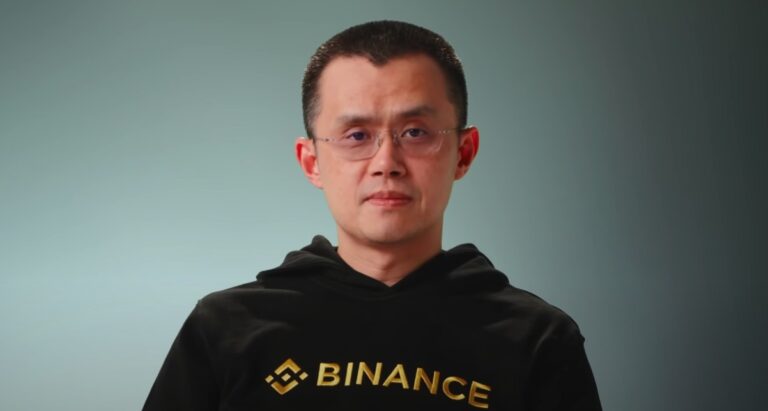Changpeng “CZ” Zhao, the billionaire co-founder of Binance, the world’s largest cryptocurrency exchange, has been sentenced to four months in prison for violating anti-money laundering laws. The sentence, handed down by Seattle Judge Richard Jones, comes after Zhao pleaded guilty to the charges in November 2023.
According to a report by Bloomberg, prosecutors had recommended a three-year prison term for Zhao, citing his flippant attitude towards complying with the law. However, Judge Jones opted for a shorter sentence, although Zhao will still go down in history as the richest person to serve time in a US federal prison. Despite the legal troubles, Zhao’s personal fortune, estimated at $43 billion and tied to his ownership of Binance, remains intact and is likely to grow as the exchange’s business accelerates amid the latest crypto bull run.
The Department of Justice’s arrangement with Zhao has drawn criticism from some in the cryptocurrency market. Dennis Kelleher, president and CEO of Better Markets Inc., argued that the DOJ should have charged and punished dozens of people connected to Binance, barring them from the financial industry forever. In addition to his prison sentence, Zhao agreed to pay a $50 million personal fine, while Binance itself will pay $4.3 billion in penalties to settle a case involving numerous allegations related to anti-money laundering and sanctions law violations.
Despite the gravity of the allegations and the admissions of guilt by Zhao and Binance, the exchange continues to thrive, maintaining its position as the most important player in the crypto market. The company added more than 40 million new users in 2023, a 30% increase from the previous year, and customers’ holdings on the exchange have surpassed $100 billion. As Bloomberg correctly points out, Binance’s resilience is largely due to traders viewing the company and Zhao differently than they do FTX, which went bankrupt after its founder, Sam Bankman-Fried, misappropriated billions of dollars worth of users’ cryptocurrencies.
The contrasting outcomes for Bankman-Fried and Zhao highlight their different business approaches. While Bankman-Fried attempted to talk and tweet his way out of trouble, Zhao admitted guilt, cooperated with the government, and remained silent. Following Zhao’s guilty plea, Yi He, the mother of three of his children and a Binance co-founder, has taken on a more prominent role in running the company’s operations. Richard Teng, formerly the head regulator at Abu Dhabi Global Market, now serves as the chief executive and public face of Binance.
As Zhao serves his sentence, a US monitor will be assigned to oversee Binance’s compliance with the plea agreement for five years, ensuring that the exchange takes appropriate steps to abide by anti-money laundering and sanctions laws. Meanwhile, the SEC has filed a separate action against Binance and its sister company, Binance.US, for allegedly running unregistered exchanges, broker-dealers, and clearing houses. This case is expected to drag on for years as Binance fights the accusations.
As for Zhao’s future after his sentence, he has expressed interest in working with biotech startups to use blockchain technologies to cure diseases and provide medical access to billions worldwide. He has also proposed a concept for a global online primary school program called Giggle Academy.
Yesterday, CZ wrote that the next chapter of his life (after prison) will be focused on education:
Here’s what CZ said about this personal project on March 19:
In a concept paper dated February 2024, CZ outlines his vision for a free online platform that aims to provide accessible, engaging, and adaptive education to underprivileged children worldwide.
According to the document, Giggle Academy seeks to address the global literacy crisis, particularly in South Asia, West Asia, and sub-Saharan Africa, where over 75% of the world’s 781 million illiterate adults reside. CZ’s goal is to create a comprehensive curriculum spanning grades 1-12, covering subjects such as reading, writing, math, science, finance, and even topics often neglected in traditional schools, such as emotional intelligence, negotiation skills, and entrepreneurship.
One of Giggle Academy’s key features is its emphasis on gamification. CZ believes that by making learning addictive and engaging, the platform can attract and retain students who may not otherwise have access to quality education. The concept paper also highlights the importance of adaptive learning, allowing students to focus on their strengths and interests rather than adhering to a one-size-fits-all approach.
While Giggle Academy will not offer traditional degrees, it will utilize a system of points, levels, and badges to certify students’ progress and achievements. These certifications will be issued as Soul Bound Tokens (SBTs) on a blockchain, enabling potential employers to verify a student’s skills and knowledge easily.
CZ acknowledges the challenges that come with online learning, such as the lack of peer support and the need for parental buy-in. To address these issues, the platform will include social features, peer tutoring, and mentoring programs. Additionally, Giggle Academy aims to partner with companies to provide job opportunities for students, creating an incentive for parents to keep their children engaged in learning.
The concept paper also reveals CZ’s motivation for launching Giggle Academy. He believes that education is fundamental to addressing global issues such as corruption, hunger, and climate change. By leveraging his expertise in building scalable software platforms, CZ hopes to make a lasting, positive impact on the world.
As CZ serves his time in prison, it is clear that he is already looking towards the future and how he can use his resources and influence to make a difference. Giggle Academy represents a bold vision for accessible, engaging education that has the potential to transform the lives of millions of underprivileged children worldwide.
On April 18, CZ provided a little demo of a “testnet” lesson that will be part of Giggle Academy’s curriculum:









